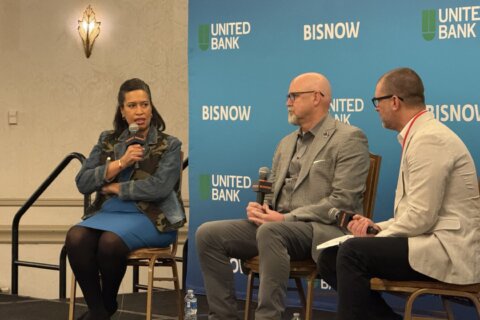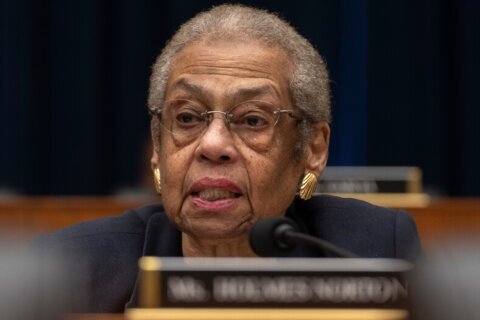Abortion rights opponents walked in the March for Life on Friday amid feels-like temperatures in the teens in D.C., but the protest may be remembered for more than its bone-chilling weather with the Supreme Court set to allow states to restrict abortion access.
The annual march marks the anniversary of the Supreme Court’s decision in the case of Roe v. Wade, which made abortions legal in the entire U.S. in 1973.
But, possibly for the first time since the march’s inception, the Supreme Court is poised to roll back abortion access and could even overturn Roe v. Wade.
The flagship March for Life event is about to step off along their annual route down D.C.’s Constitution Avenue to the Supreme Court. This’ll be its 49th iteration, coming with the backdrop of a high-profile case whose outcome could dramatically alter abortion access. pic.twitter.com/JiCszLdyHS
— Alejandro Alvarez (@aletweetsnews) January 21, 2022
If the ruling is weakened or overturned, at least 26 states are expected to further limit abortion access, The Associated Press reported.
WTOP’s Neal Augenstein interviewed a couple from Washington who traveled across the country to attend D.C.’s march after attending other marches against abortion rights on the west coast.
“Just consider all the children — the babies — that have been aborted that could be citizens of this country,” the husband said. “And who knows? They could have been Albert Einstein all over again.”
The couple, who are retired, said they regularly donate to causes against abortions, including a clinic that provides women with ultrasounds.
“What’s really cool is that now they have the imaging available for women, and so many babies are saved once they see the ultrasound,” the wife told WTOP.
The husband acknowledged a ruling by the Supreme Court would likely kick the issue of abortion rights to the states, which could mean opponents to abortion will still have their work cut out for them in areas such as his home state of Washington.
A man who said he works for Care Net, a network of anti-abortion pregnancy centers and churches, said his work helps educate people about fetal development and the risks of an abortion while providing them with support so they don’t “feel pressured into a decision that they might regret.”
He passed out signs for protesters at the Metro stop for the Smithsonian museums Friday morning.
When asked about the possibility of this being the last March for Life if the Supreme Court’s 1973 decision is overturned, he responded, “From our perspective as a ministry, the legal victory is one thing, but after that legal victory happens, in a lot of ways the work really just begins.”
In his case, he said, his work will probably become more intense if abortion access is limited in the future.
“There are going to be millions of more women and men every year who might not have access to abortion anymore, and they’re going to need help and support and compassion to make life decisions,” he said.
Rally and march
The kick off rally for the event began at noon and the march followed at 1 p.m. between 12th and 14th streets, up Constitution Avenue to the steps of the Supreme Court.
The day’s events included speeches from familiar faces in the entertainment industry such as Kirk Cameron, an actor well-known for his role in the show “Growing Pains,” and Lisa Robertson from the show “Duck Dynasty.”
Impact of COVID-19
Outside of cold weather and climbing COVID-19 cases, a recently instituted vaccination requirement for indoor venues in D.C. could pose a potential challenge for unvaccinated abortion rights opponents participating. Some indicated on the march’s Facebook page that they were hesitant or wouldn’t attend the event since unvaccinated people can’t enter many businesses in the District.
A woman from Washington told Augenstein that she believed Mayor Muriel Bowser “shut D.C. down to make it quite difficult for the unvaccinated to come and enjoy themselves.”
She added, “We moved into our hotel and we’re staying there and just coming here. Still having a voice.”
Marchers won’t be required to be vaccinated, since the walk is outdoors, but march organizers want them to mask up, based on guidance from the Department of Interior, since they can’t maintain social distancing. Masks and hand sanitizer are available at the rally, according to its website.
Anyone dining at the Rose Gala Dinner will need to either prove they’re vaccinated or provide a medical or religious exemption and a negative test.
Event organizers are asking people who are feeling sick to stay home.
The Associated Press and WTOP’s Abigail Constantino contributed to this report.








